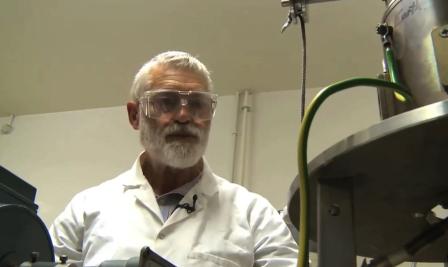Research and commercialisation can co-exist happily, achieving both academic and commercial goals. The secret lies in creating an intelligent IP strategy. This establishes structures and decisions that enable researchers to continue their work – often on an expanded resource base – and allows spin-outs to be established into growing companies.
In fact, when there is a harmonious relationship that acknowledges both commercial and research needs, the two can complement each other very well. Researchers can provide a pipeline for ongoing innovation and competitive advantage, and industrial credentials can bolster research projects.
powerhouse commercialises research intellectual property (IP) based on an understanding of the unique needs of academia. It has developed methods that build benefits for academics in projects that assist research funding, reward researchers and institutes, enhance publication and enable more international opportunities.
The intellectual property rights that come from novel research outcomes can be applied in a number of ways. These include licensing direct to industry, setting up IP holding companies that license the rights to other companies, licensing or selling the IP to a start-up.
powerHouse is committed to outcomes that provide “wins” for researchers and institutes. We believe in timely negotiations that do not compromise research or publishing timetables. We support appropriate disclosure and leverage for researchers and institutes, while still ensuring the best commercial outcomes. We can also use tactics such as interim patents and publication to streamline the process and support longer-term goals.
Commercialisation options
Universities and CRIs are required to transfer IP to get the best returns for the institution. Each has their own policies regarding the management of IP. powerHouse uses a unique model to screen and shape IP as part of its investment programme and is particularly interested in creating seed-stage start-up and spin-out companies based on IP licensed from research institutes.
When powerHouse sees a piece of IP suitable for start-up, we negotiate with the institute’s technology transfer office for the rights to be the research commercialisation entity. We clarify who owns the IP and if there are any existing contractual constraints. For example, the IP may have been developed during a specific contract where an industry partner is entitled to first rights to commercialise the technology.
There are many transfer mechanisms available. These include:
- assignment, where the IP is sold and ownership (total control) shifts to the other party;
- sole license, where only the owner (research institute) and one other party have rights;
- non-exclusive license, any number of parties can be given rights by the owner;
- exclusive license, where only the other party has rights of use and there are no use rights for the owner;
- brokerage, where a party brokers the deal on behalf of the owner;
- any combination of the above.
There are so many assignment and licensing options available that each deal is unique. The final shape of the deal depends on the transfer mechanisms used, geographical jurisdiction, the fields in which the IP is used, the term of each license, and the types of rights (eg research rights or commercialisation rights) finally agreed upon.
Negotiations can be built to be responsive and flexible. For instance, most investments are built on milestones and stage gates ensuring the right investment is available at the right stage of the company’s development. Assignments and licenses can also be revoked or altered depending on the deal. This is useful when setting targets such as milestones or minimum royalties within certain timeframes.
Some examples of IP transfer mechanisms used by powerHouse include:
- Brokerage
- Exclusive license
- Assignment and License combo
Academic motivation
powerHouse recognises that academia and commerce have different drivers and cultures, and that many academics do not want to be entrepreneurs, but instead to further their research career while still being acknowledged and rewarded for the value of their research. Our model is designed to ensure the founders and the research institute are motivated to see the company succeed.
Publication
We work to develop business models that encourage publication as part of the IP strategy. Publication has many benefits to a research-led start-up, but we need to evaluate the IP first to decide whether patenting should happen before disclosure, or whether judicious publication to allow some trade secrets to remain gives the start-up its best chances of success.
Equity
The percentage of equity researchers and institutes get depends on the nature and strength of the IP being transferred into the start-up and the rights to the IP that the start-up negotiates.
Employment
If continued development is required and the academics/researchers want to keep working for the research institute, powerHouse may seek a Development Contract between the start-up and the university. This would clarify terms for the ownership and development of new IP while maintaining rights for the researcher to use the IP for research purposes.
Contact us to find out more about how we can help you to commercialise your research.

